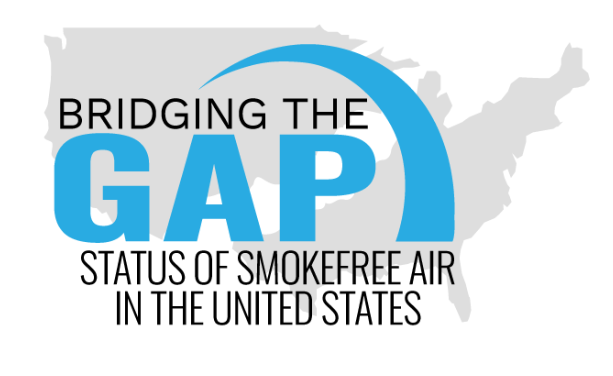Moving Mountains to Ensure Everyone Can Breathe Smokefree Air
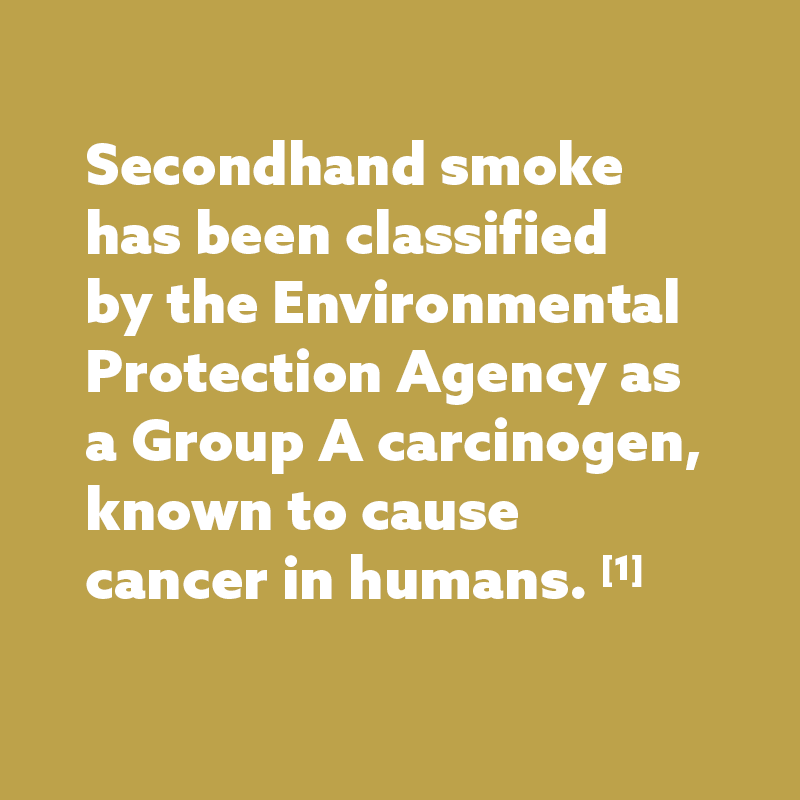
West Virginia, the Mountain State, is home to 1.77 million residents. Many West Virginians are still exposed to secondhand smoke in workplaces like bars, casinos, and private clubs that host limited video lottery—a burgeoning industry. In 2018, Hancock County rescinded their comprehensive smokefree policy, caving to pressure from the Mountaineer Casino and limited video lottery establishments. Through education, organization, and activism, grassroots advocates have been able to defeat previous preemption attacks and overcome challenges.
- 37 counties have strong smokefree laws covering all workplaces, including restaurants and bars, protecting 65.1% of West Virginians. [2]
- Opponents from tobacco and gaming industries introduce legislation annually to roll back local control and prevent local governance on these life-saving public health laws.
- Smoking costs $1 billion in annual health care costs and an estimated $1.23 billion in lost productivity. [3]
- Tobacco use is the leading preventable cause of death in West Virginia, claiming more than 4,300 lives each year. [4]
- Focusing on local smokefree protections continues to build momentum to strengthen the statewide law and prevent preemptive threats from the state legislature to limit local control.
Preemption Status:
Partially preempted
State law does not preempt local governments from adopting smokefree air laws, yet Board of Health authority has been compromised. Preemption refers to situations in which a law passed by a higher level of government takes precedence over a law passed by a lower one. Preemption is a tobacco industry tactic that removes a community’s right to enact local smokefree air laws. West Virginians remain on high alert to respond to continued and intensive efforts from Big Tobacco and the casino-gaming industry to prevent local smokefree progress through statewide preemption.
Preemption: The Tobacco industry's #1 opposition tactic against smokefree protections

The smoking rate among adults in West Virginia is 22.6%
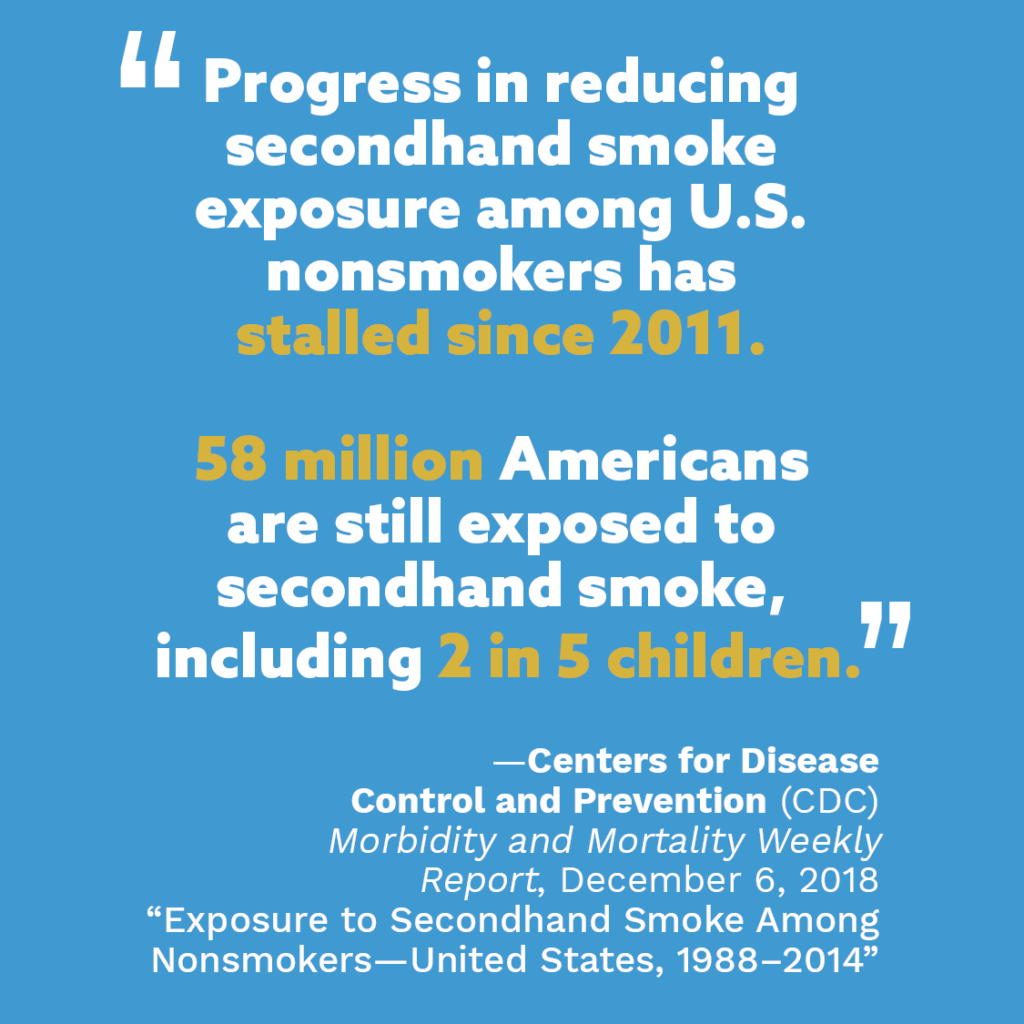
Those that work in hospitality venues like casinos and bars are most likely to be exposed to toxic secondhand smoke
Current Landscape of Smokefree Protections
100% Smokefree Workplace, Restaurant, and Bar Laws, as of December 2022 [2]
Click on any star for city name.
To see additional smokefree laws, visit our list.
Local Action has Led the Way

In West Virginia, local action has led the way and provided an opportunity to improve public health in a meaningful way. In 1992, the first county regulation on secondhand smoke was passed in Monongalia County. Since that time, all 55 counties in West Virginia have adopted some kind of regulation restricting smoking.
In 2021, legislation preempting authority of local Boards of Health became law creating a further chilling effect for smokefree momentum. Any action by a Board of Health, the process that created the current infrastructure of strong smokefree laws, now requires approval by the County Commission and created an additional administrative process for any changes to current law to update language for example to include use of e-cigarettes where smoking is not allowed. State and national partners remain must remain vigilant to protect the integrity of smokefree laws in place and prevent any further threats to repeal and/or preempt local laws.
Who is Left Behind
Health outcomes vary significantly within West Virginia, and, while progress has been made, the majority of residents remain exposed to secondhand smoke at work. Of the 1.7 million residents in West Virginia, over 690,000 live in a rural area. [5] The social determinants of health impacting the rural population are significant. Those living in rural areas face unique challenges with lower quality of life than areas closer to larger municipalities. African-Americans are also more likely to suffer lower quality of life and premature death than their white neighbors. In addition, those who work in hospitality venues like casinos and bars are most likely to be exposed to toxic secondhand smoke.
There are five casino properties across the state of West Virginia: The Casino Club at The Greenbrier, Hollywood Casino at Charles Town Races, Mardi Gras Casino, Mountaineer Casino and Racetrack, and Wheeling Island Casino and Racetrack. [6] The Greenbrier and Mardi Gras Casinos are smokefree indoors. The best way to achieve health equity and close the gaps on access to smokefree air is through comprehensive policy change.
Poor Health Outcomes and High Costs
Tobacco use is the leading preventable cause of death in the United States. More than 480,000 people die from smoking or exposure to secondhand smoke each year. [7]
As the northernmost southern state and southernmost northern state, West Virginia has a unique geography and culture that unfortunately includes their placement on the worst health lists. Everyone in the Mountain State is paying the cost of higher smoking rates and poor health outcomes. The smoking rate among adults is 22.6% and 13.5% for high school students, compared to national rates of 12.5% and 4.6%, respectively. [3] At current trends, 47,000 kids currently under the age of 18 will die prematurely from smoking. [5] There is a growing disparity in tobacco usage rates in the “Tobacco Nation” that includes West Virginia. [8]
Secondhand smoke exposure causes heart disease, stroke, and lung cancer among adults, as well as respiratory disease, ear infections, sudden infant death syndrome, more severe and frequent asthma attacks, and slowed lung growth in children. [7,9]
Beyond secondhand smoke exposure, nonsmokers exposed to thirdhand smoke in a casino are at an ever higher risk than those in a thirdhand smoke-polluted home. [10] Further, hospitality workers and children are susceptible to thirdhand smoke exposure, as the particles cling to hair, clothing, and cars. Young children are particularly vulnerable, because they can ingest tobacco residue by putting their hands in their mouths after touching contaminated surfaces. [11]
Smokefree laws help to reduce adult smoking prevalence and prevent youth and young adult smoking initiation. [7,9]
Of the 1.7 million residents in West Virginia, over 690,000 live in a rural area. [5] The social determinants of health impacting the rural population are significant.
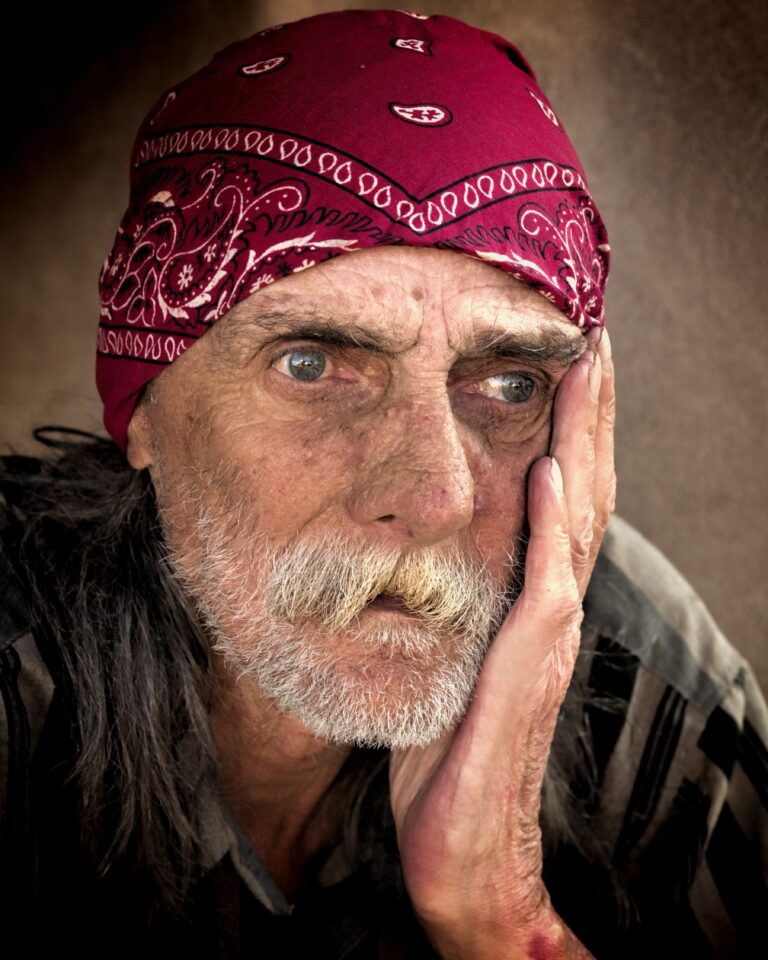
Gaming in West Virginia
There are at least five gaming establishments in West Virginia, and three are 100% smokefree. Casinos, race tracks and other gaming establishments are workplaces as well as public places and should also be smokefree. See ANR Foundation’s Smokefree Casino and Gaming Property Directory for West Virginia.
First of its kind study demonstrates that casino visitors, even current smokers, desire smokefree spaces.

“When smoking is allowed in indoor areas of casinos, millions of nonsmoking casino visitors and hundreds of thousands of employees can be involuntarily exposed to secondhand smoke and related toxicants.” [12]
—Office on Smoking and Health, Centers for Disease Control and Prevention
A recent study found that 75% of U.S. adults who visit casinos favor smokefree casinos.
No prior studies have exclusively assessed adult attitudes toward smokefree casinos in the United States.
This study found very high favorability among those age >64 (81.6 %), college educated (81.7%), and higher income (79.1/80.8%). Smokers made up 13% of the sample, and, of those smokers, nearly half (45%) supported smokefree casinos. [12]
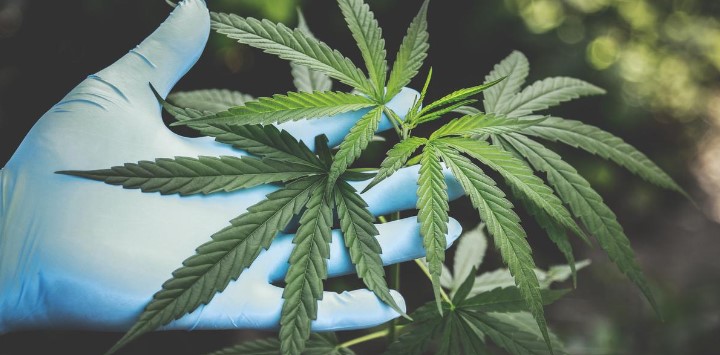
New Potential Challenge: Secondhand Marijuana Smoke
The West Virginia legislature legalized medical cannabis for specific chronic medical conditions in 2017; the law went into effect in July 2018. Secondhand marijuana smoke is a health hazard for nonsmokers. Just like secondhand tobacco smoke, marijuana smoke is a potent source of PM 2.5 fine particulate matter. Marijuana secondhand smoke impacts cardiovascular function; it contains thousands of chemicals and at least 33 carcinogens.
COVID Reminds Us That Health Promotion Policies Matter
Smoking and vaping, along with exposure to secondhand smoke and aerosols, negatively impact the respiratory system and may cause a person’s immune system to not function properly, known as being immunocompromised. Research demonstrates that current and former smokers of any age are at higher risk of severe illness from coronavirus disease (COVID) in part due to compromised immune and/or respiratory systems. Smoking leads to cardiovascular disease, as well as respiratory illnesses including bronchitis, asthma, Chronic Obstructive Pulmonary Disease (COPD), and lung cancer as a result of exposure to particulate matter, toxins, and carcinogens into their lungs. Secondhand tobacco and marijuana smoke and aerosol contain many of the same toxins, carcinogens, and particulate matter that lead to respiratory and cardiovascular diseases.
Removing masks to smoke or vape indoors undermines the proven benefit of face coverings and increases the risk of transmitting or inhaling COVID via infectious respiratory droplets, uncovered coughs, and increased touching of faces. Preventing exposure to secondhand smoke and e-cigarette aerosol or vape by adopting a smokefree policy with no smoking or vaping indoors and moving smoking or vaping to socially distanced outdoor areas away from entrances, could help mitigate worker and public exposure to carcinogens and toxins, as well as COVID.
Just as social distancing and handwashing help prevent the spread of disease, eliminating secondhand smoke is critical to prevent acute and chronic diseases, and saves lives by reducing the risk of heart disease, stroke, respiratory diseases, and lung cancer by up to 30% at a population wide level.
Going smokefree prevents exposure to the carcinogens and toxins in secondhand tobacco and marijuana smoke as well as dramatically reduces the spread of respiratory droplets that could transmit flu and other viruses like COVID.
Strategies to Close Gaps & Increase Health Equity
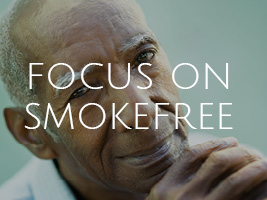
Stay focused on smokefree policies: Competing issues can distract and delay work on smokefree policies. Smokefree laws have immediate and long-term health and economic benefits, and they are worth the investment of time and effort to protect everyone from exposure to a known human carcinogen. Strengthening the statewide smokefree law will require highly organized, concentrated efforts to build decision-maker support and create a sense of urgency to act to make all workplaces smokefree.
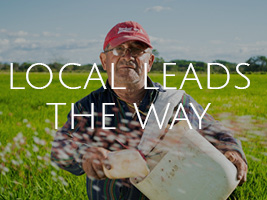
Let local lead the way: To date, West Virginia municipalities have the authority to adopt local laws, and communities should focus on strengthening these laws to cover all workplaces, including bars and gambling facilities. Local control and increasing civic engagement is at the heart of our broader goal of educating the public about the health effects caused by secondhand smoke and changing attitudes regarding smoking in ways that harm other people.
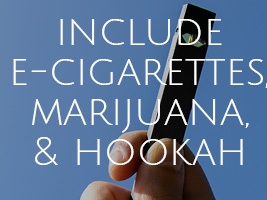
Smokefree laws should also prohibit the use of electronic cigarettes (e-cigarettes), marijuana, and hookah to prevent secondhand smoke exposure to the toxins, carcinogens, fine particles, and volatile organic compounds that have been found to compromise respiratory and cardiovascular health. [13,14]
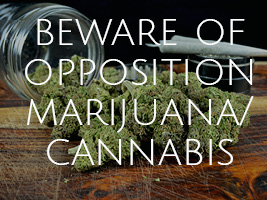
Beware of opposition from cannabis/marijuana proponents: The West Virginia legislature legalized medical cannabis for specific chronic medical conditions in 2017; the law went into effect in July 2018. States that legalize medical marijuana typically go on to legalize recreational, adult use marijuana after a few years. Marijuana smoke is also a form of indoor air pollution and a hazard to nonsmokers’ health. In order for indoor workplaces and public spaces to truly be safe and healthy environments, tobacco and marijuana smoke, along with secondhand e-cigarette aerosol/vapor should be prohibited.
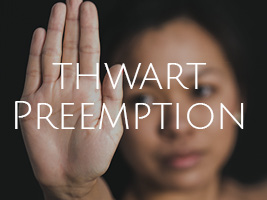
Prevent preemption: West Virginia has been recognized for their impressive ability to thwart the barrage of preemptive threats to tobacco control each year. Facing powerful and clever opposition from Big Tobacco and the gaming industry, the threat has continuously evolved. The opposition has targeted the authority of local public health boards’ regulation of any issue, not isolating preemption to smokefree policy change. With expert political maneuvering, it has become increasingly difficult to track and defeat legislation that limits local control. Vigilance in preventing preemption is of the utmost importance, as with one singular measure the decades of progress made in reducing secondhand smoke exposure and addressing tobacco use could be set back to square one.

Continue efforts on smokefree casinos: The gaming industry has expanded in West Virginia to include thousands of limited video lottery machines in membership clubs and other venues. Their influence is significant, and there has been pushback from decision-makers on including limited video lottery establishments in smokefree policies. To run these facilities requires employees, and that means the potential of working an eight-hour shift in a smoke-filled venue. No one should have to choose between their health and a paycheck. Bolstering efforts for smokefree gaming at the local and statewide level is of the utmost importance in order to protect the integrity of existing policies and create the greatest likelihood of meaningful change at the statewide level.

Increase funding and resources: Tobacco prevention, education, training, and cessation funds are needed to best address disparities in tobacco use and exposure to secondhand smoke. Public health policy best practice indicates that a properly funded comprehensive tobacco control program, increasing the price of tobacco products, and implementing 100% smokefree indoor workplace laws have the greatest impact in reducing the burden tobacco use exacts.
Workers in West Virginia Deserve Smokefree Air
Sources of data:
- “U.S. Environmental Protection Agency, Respiratory Health Effects of Passive Smoking: Lung Cancer and Other Disorders,” EPA/600/6-90/006F, December 1992.
- American Nonsmokers’ Rights Foundation. (2022). U.S. Tobacco Control Laws Database. Berkeley, CA.
- Centers for Disease Control and Prevention. (n.d.). State Highlights: West Virginia [from State Tobacco Activities Tracking and Evaluation System].
- United Health Foundation. (2018). America’s Health Rankings Annual Report.
- U.S. Census Bureau Data (2018). West Virginia.
- West Virginia Lottery Commission Annual Report (2018).
- US Department of Health and Human Services. The health consequences of smoking: 50 years of progress. A report of the Surgeon General. Atlanta, GA: US Department of Health and Human Services, CDC; 2014.
- Truth Initiative, Tobacco Nation: The Deadly State of Smoking Disparity in the U.S. (2017).
- US Department of Health and Human Services. Preventing tobacco use among youth and young adults. A report of the Surgeon General. Atlanta, GA: US Department of Health and Human Services, CDC; 2012.
- Matt, Dr. Georg (2018). Smoking Bans May Not Rid Casinos of Smoke. US News and World Report.
- Matt, G E, Quintana PJ E, Hovell MF et. al. (2004). Households contaminated by environmental tobacco smoke: sources of infant exposures. British Medical Journal: Tobacco Control.
- Michael A. Tynan, BA1 ; Teresa W. Wang, PhD1; Kristy L. Marynak, MPP1; Pamela Lemos, MS1; and Stephen D. Babb, MPH1, Attitudes Toward Smoke-Free Casino Policies Among US Adults, Centers for Disease Control and Prevention Office on Smoking and Health, Public Health Reports, 2017 [accessed 2019 Mar 21].
- Grana, R; Benowitz, N; Glantz, S. “Background Paper on E-cigarettes,” Center for Tobacco Control Research and Education, University of California, San Francisco and WHO Collaborating Center on Tobacco Control. December 2013.
- Williams, M.; Villarreal, A.; Bozhilov, K.; Lin, S.; Talbot, P., “Metal and silicate particles including nanoparticles are present in electronic cigarette cartomizer fluid and aerosol,” PLoS ONE 8(3): e57987, March 20, 2013.
Related Reading:
Huang, J., King, B.A., Babb, S.D., Xu, X., Hallett, C., Hopkins, M. (2015). Socio-demographic disparities in local smokefree law coverage in 10 states. American Journal of Public Health, 105(9), 1806–1813.
Tynan, M.A., Baker Holmes, C., Promoff, G., Hallett, C., Hopkins, M., & Frick, B. (2016). State and local comprehensive smoke-free laws for worksites, restaurants, and bars — United States, 2015. Morbidity and Mortality Weekly Report, 65(24), 623-626.
American Gaming Association. State of the States: The AGA Survey of the Casino Industry, September 2018.
Rhoades, R. and Beebe, L. Tobacco Control and Prevention in Oklahoma: Best Practices in a Preemptive State. American Journal of Preventive Medicine. (January, 2015)
[n.a.], “Tobacco industry interference with tobacco control,” Geneva: World Health Organization (WHO), 2008.
NCI Monograph 17: Evaluating ASSIST – A Blueprint for Understanding State-level Tobacco Control Evaluation of American Stop Smoking Intervention Study for Cancer Prevention Chapter 8, Evaluating Tobacco Industry Tactics as a Counterforce to ASSIST (October 2006).
July 2022
